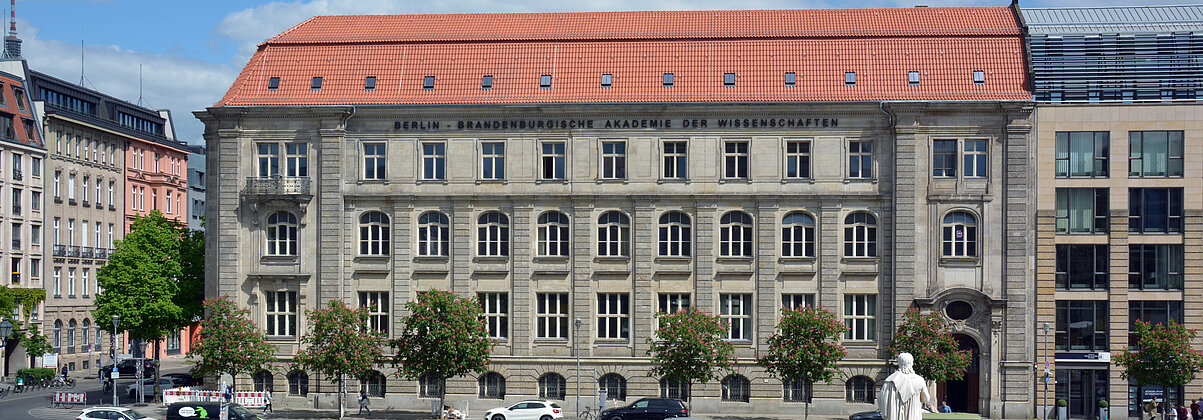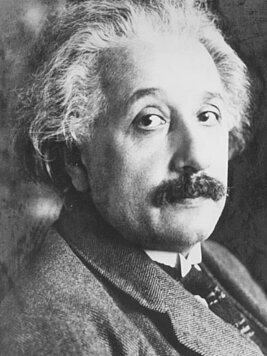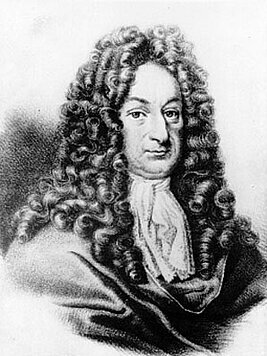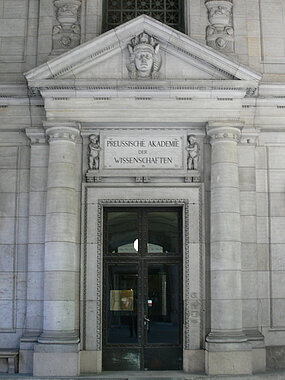


The Berlin-Brandenburg Academy of Sciences and Humanities, which has had many names since its inception, looks back on an eventful past. Reconstituted in its present form in 1992 by an interstate agreement between Berlin and Brandenburg, it carries on the tradition of the Prussian Academy of Sciences.

82 Nobel laureates have shaped the Academy’s history, which goes back to the Society of Sciences of the Elector of Brandenburg (Kurfürstlich Brandenburgische Sozietät der Wissenschaften). It was founded in 1700 by Gottfried Wilhelm Leibniz (1646–1716) under Elector Frederick III of Brandenburg. From the start, this institution united the natural sciences and the humanities, which made it the prototype for many academies that followed.
As the Prussian Academy of Sciences (Preußische Akademie der Wissenschaften) the academy gained international recognition and fame. Many great names have left a mark on the Academy’s history of more than 300 years. They include Jacob and Wilhelm Grimm, Wilhelm and Alexander von Humboldt, Lise Meitner, Theodor Mommsen, Albert Einstein and Max Planck.
Today the Academy is an interdisciplinary association of scholars with approximately 400 members – who are all outstanding representatives of their fields – and collaborates with scientists worldwide. With about 250 employees, it is currently the largest non-university research institution dedicated to the humanities in the Berlin-Brandenburg region. The Academy’s mission is to further the sciences and the humanities.

Its research profile is marked by efforts to promote cultural heritage. It is the only Academy in Germany to pursue a large number of inter- and cross-disciplinary research projects on topics of future relevance. The Academy’s activities focus also on conducting research in the humanities, exploring future scientific and social issues on an interdisciplinary level, as well as promoting dialogue between science and society.
The Berlin-Brandenburg Academy of Sciences and Humanities is financed by both the State of Berlin and the State of Brandenburg. A great deal of its research is done within the scope of the Academy Programme, which is funded by the German federal and state governments.
Some 23 long-term projects make the Academy the largest non-university research institution with a profile in the humanities in the region. These projects include large German and foreign-language dictionaries; historical-critical editions of ancient, medieval, and modern texts and sources; “classic” works from diverse scientific fields; as well as a number of documentations.
In a rather innovative form for the academic world in Germany, Academy members work on interdisciplinary projects with external and talented young experts on issues relevant to the future of society. Their findings are presented to the public in research reports and memoranda. Central fields include the monitoring of short and long-term scientific developments in Germany.
The Academy encourages the dialogue between science and society in a variety of ways. Assorted events are held to emphasize this mission. With its initiative Academy and School and other individual activities, the Academy also addresses younger audiences. In addition, it has attempted to explore and present central issues by networking with other institutions on annual topics.

The Academy is part of an international network based on cooperation agreements with nineteen academies on four continents. In cooperation with the German Academy of Natural Scientists Leopoldina (Deutsche Akademie der Naturforscher Leopoldina) – it has founded in 2000 Die Junge Akademie which is, even from an international perspective, a unique organisation for promoting outstanding young academics in Germany.
Under the leadership of the German National Academy of Sciences Leopoldina , and in conjunction with acatech – National Academy of Science and Engineering , as well as the other seven German academies (united in The Union of the German Academies of Sciences and Humanities ), the Berlin-Brandenburg Academy of Sciences and Humanities contributes to the work of the National Academy.